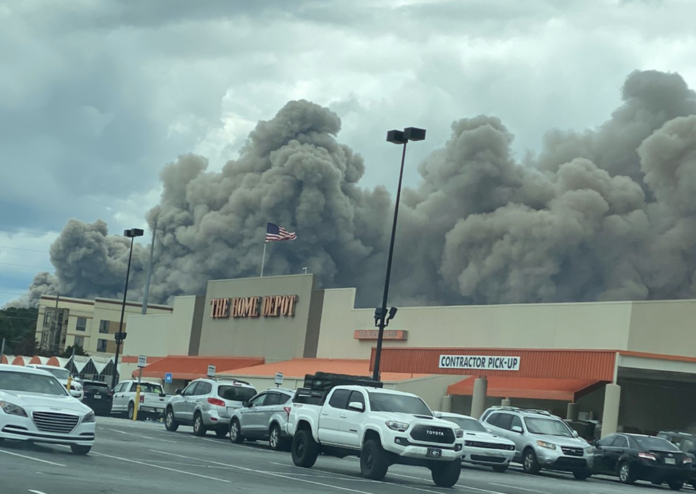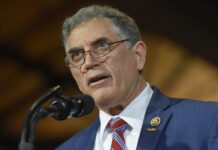
Chemical maker BioLab is closing its manufacturing plant in metro Atlanta’s Rockdale County but keeping a distribution facility, a release said.
A chemical fire at the plant in Conyers on Sept. 29, 2024 forced the evacuation of 17,000 residents. A shelter-in-place order for an additional 90,000 disrupted the lives of a community where 63% of residents are Black.
In a short statement Friday afternoon, the company said, “considering our future business needs,” it will not restart the facility, which had not resumed full operation since the fire.
“The Conyers Distribution Center, which was cleared by relevant authorities to reopen in November 2024, will remain operational and will continue to fulfill customer orders for finished products from other manufacturing facilities,” the company said.
Conyers Resident Cheryl Garcia calls the announcement “a partial win.”
“I’m not happy because that means that the chemicals are still there and they can still catch on fire.” She said, adding, “I’m still extremely disappointed and concerned for the health and safety of the citizens of Rockdale County.”
The Committee to Protect Rockdale, formerly named the Shutdown Bio-Lab Coalition, released the following statement:
”Over twenty years after their first major disaster, the Committee to Protect Rockdale recognizes this closure is a good first step towards accountability, and we look forward to continuing that journey in the courthouse and the community. Right now, our attention is on supporting the Public Health Recovery Research project so that we can track health and wellness outcomes and make sure no one gets left behind in the coming years.”
Hannah Loyd, a former Rockdale County resident who has since moved to Florida, sent a statement to GPB, stating her continued concerns.
“With the recent news about BioLab no longer producing I’m not exactly sure how to explain the emotion that I feel,” she wrote. “They have been doing this since the fire, and probably long before it. It’s all in their wording and I almost think they want us to be quiet. Of course, people are going to be out of jobs and nobody wants that. The health risks and the longevity of someone’s life is way more important than a paycheck to me.”
Loyd said she believes a fire risk will continue even without active manufacturing.
“I just don’t really know if it’s good news or bad news, because either way the chemicals are still going to be there whether they’re being manufactured or not is the other question,” she said.
In the months since the fire, GPB reported firsthand accounts from residents who described the sudden chaos and fear as toxic smoke spread through their neighborhoods. 911 calls revealed a “sprinkler head bust” at BioLab’s Plant 12, a massive warehouse storing millions of pounds of pool and spa chemicals. The problem began when a water-reactive chemical got wet, leading to a violent reaction.
In the podcast Manufacturing Danger: The BioLab Story, GPB’s Pamela Kirkland investigated what led to the fire, how officials and the company responded, and the lingering questions about its impact on the community.
GPB reached out to BioLab for comment and has not received a response.
This article comes to Now Habersham in partnership with GPB News







